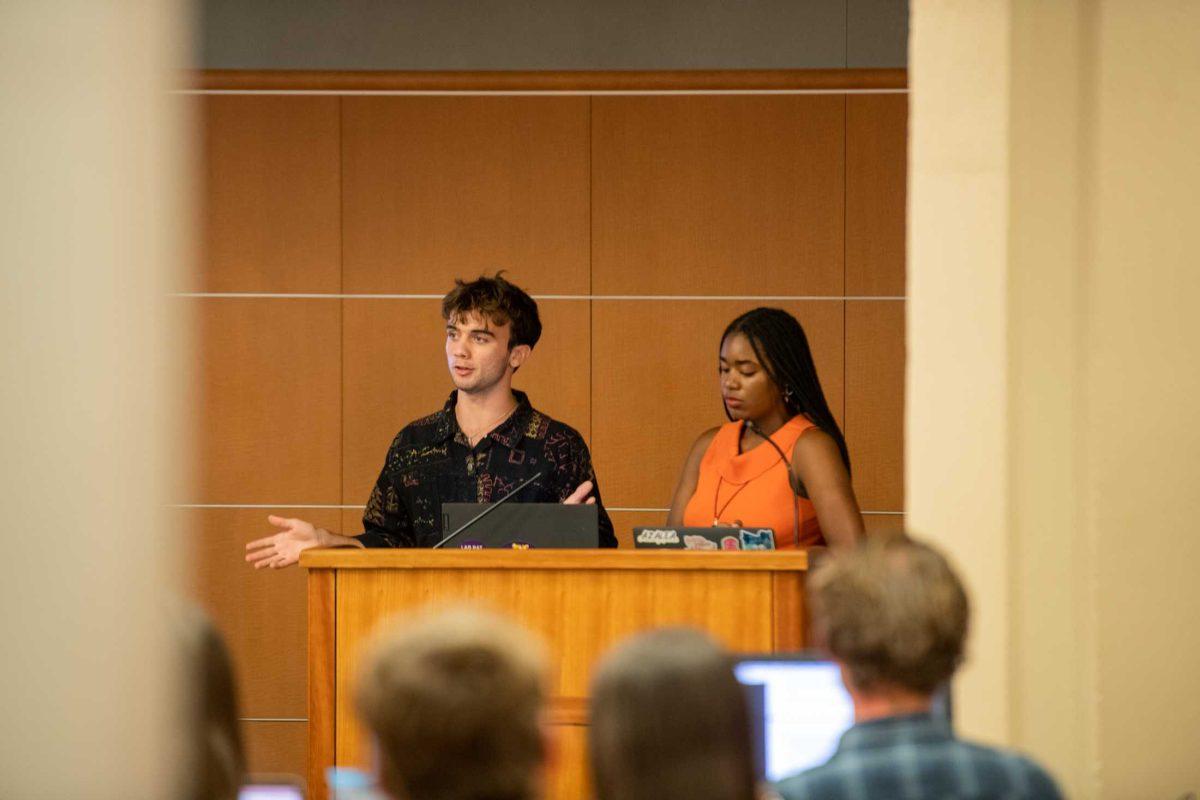LSU’s Student Senate rejected a resolution Wednesday proposing that non-LSU affiliates — those who are not employed by or enrolled in the university — would first be required to gain approval from a registered student organization to have a public display in Free Speech Alley.
Student Government resolutions are non-binding — meaning that, while the motion it proposes can be adopted by LSU, it doesn’t have to be. Instead, these measures act as suggestions to the university and indications of the student body’s wishes.
Throughout its long history, Free Speech Alley has acted as a meeting place where members of the general public are encouraged to exchange ideas with the student body. At moments in that history, including recently, the strip of sidewalk in front of the Student Union has become a source of debate.
Free Speech Alley draws members from the outside community to campus — artists, peaceful protestors and concerned citizens — but controversial groups with harsh methods have drawn criticism.
“I have seen some rallies that have occurred because of some people, and they’re just inappropriate,” said Cameron Jones, a biochemistry and kinesiology junior. “There was one rally I saw—they had Jesus on a stick, and there was a condom on it.”
Kinesiology junior Ariana Findley, who appreciates many of the groups who come to Free Speech Alley, called others “disruptive” and somewhat “excessive.”
“I see a lot of club stuff there that looks interesting and the people who’ve been selling jewelry recently, that looked really pretty. . .” English senior Elle Coleman said. “I don’t love being harassed by the church people that yell at you though.”
At Wednesday’s Student Senate meeting, the resolution, SGR 1, was met with skepticism as senators questioned the Student Senate’s ability to fix problems in Free Speech Alley.
Sen. Calvin Feldt noted that any overly disruptive group in Free Speech Alley would be subject to police removal anyways but did say “that we do have a real problem on Free Speech Alley.”
He argued the resolution wasn’t legally feasible.
“We do not have the legal grounds to implement anything like this on campus,” he said. “… I would strongly urge against this resolution. . .because we would look like fools for passing this resolution.”
Other senators shared that sentiment.
Sen. “Corbitt” Driskell asserted that the difference between free speech and hate speech must be observed, but then pointed out that if LSUPD isn’t removing disruptive demonstrators now, the resolution would be hopeless.
“If they’re not doing what they’re supposed to be doing now, how are they going to do this?” he said.
The opponents’ arguments won out. The measure failed with only 17 votes in favor, eight abstensions and 28 votes against.
The resolution’s authors, Sens. Lailah Williams and Cartie Whitelaw, responded to the decision with mixed feelings but a positive outlook.
“Today is not a total loss; it is just a redirection,” Williams said.
“While the resolution did not pass today, I’m still happy about it,” Whitelaw said.
“I’m really hoping that this’ll start a conversation…about all the things that happen in Free Speech Alley, and…start a conversation about fostering a safer environment here at LSU.”
Aidan Anthaume contributed reporting to this article.
Correction: This article has been updated to correct the spelling of Sen. “Corbitt” Driskell’s name.




